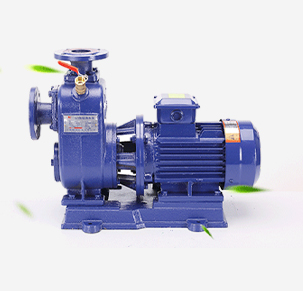English
- Afrikaans
- Albanian
- Amharic
- Arabic
- Armenian
- Azerbaijani
- Basque
- Belarusian
- Bengali
- Bosnian
- Bulgarian
- Catalan
- Cebuano
- Corsican
- Croatian
- Czech
- Danish
- Dutch
- English
- Esperanto
- Estonian
- Finnish
- French
- Frisian
- Galician
- Georgian
- German
- Greek
- Gujarati
- Haitian Creole
- hausa
- hawaiian
- Hebrew
- Hindi
- Miao
- Hungarian
- Icelandic
- igbo
- Indonesian
- irish
- Italian
- Japanese
- Javanese
- Kannada
- kazakh
- Khmer
- Rwandese
- Korean
- Kurdish
- Kyrgyz
- Lao
- Latin
- Latvian
- Lithuanian
- Luxembourgish
- Macedonian
- Malgashi
- Malay
- Malayalam
- Maltese
- Maori
- Marathi
- Mongolian
- Myanmar
- Nepali
- Norwegian
- Norwegian
- Occitan
- Pashto
- Persian
- Polish
- Portuguese
- Punjabi
- Romanian
- Russian
- Samoan
- Scottish Gaelic
- Serbian
- Sesotho
- Shona
- Sindhi
- Sinhala
- Slovak
- Slovenian
- Somali
- Spanish
- Sundanese
- Swahili
- Swedish
- Tagalog
- Tajik
- Tamil
- Tatar
- Telugu
- Thai
- Turkish
- Turkmen
- Ukrainian
- Urdu
- Uighur
- Uzbek
- Vietnamese
- Welsh
- Bantu
- Yiddish
- Yoruba
- Zulu
Telephone: +86 13120555503
Email: frank@cypump.com
Dec . 05, 2024 11:50 Back to list
Optimizing Performance of Slurry Feed Pumps for Enhanced Efficiency and Reliability
Understanding Slurry Feed Pumps Functions, Applications, and Benefits
Slurry feed pumps play a vital role in various industrial processes where the transportation of abrasive and viscous mixtures is necessary. These pumps are designed to handle complex mixtures of solids and liquids, commonly referred to as slurries. In this article, we'll explore the functionality, applications, and benefits of slurry feed pumps, providing a comprehensive overview of their importance in modern industries.
What is a Slurry Feed Pump?
A slurry feed pump is a type of centrifugal pump specifically constructed to move slurries—liquid substances mixed with solid particles. These pumps feature a robust design that allows them to handle the challenges posed by high viscosity and the abrasive nature of solid particles. Slurry feed pumps can vary in size and construction materials, depending on the specific requirements of the application.
Key Features of Slurry Feed Pumps
1. Durable Construction Slurry feed pumps are typically made from materials such as cast iron, stainless steel, or specialized alloys to withstand the wear and tear caused by abrasive materials.
2. High Capacity Designed to handle large volumes of slurry, these pumps are capable of delivering significant flow rates, making them suitable for heavy-duty applications.
3. Variable Speed Options Many slurry feed pumps come with variable speed drives, allowing operators to adjust flow rates according to the specific needs of a process.
4. Self-Priming Capability Some slurry feed pumps are designed to be self-priming, which means they can operate without manual priming, thereby reducing downtime and improving operational efficiency.
Applications of Slurry Feed Pumps
Slurry feed pumps are utilized in various industries, including
- Mining and Mineral Processing In mining operations, slurry pumps transport mineral slurries, tailings, and other abrasive materials from one processing stage to another. This ensures efficient extraction and processing of valuable minerals.
slurry feed pump

- Construction These pumps are often used in the construction industry to handle concrete slurries or cement mixtures, facilitating the movement of materials across construction sites.
- Power Generation Slurry feed pumps are employed in power plants to manage the flow of ash slurries generated from combustion processes, ensuring efficient disposal and processing.
- Water Treatment In wastewater treatment facilities, slurry pumps help manage the transportation of sludge and sediment, contributing to effective water treatment processes.
- Chemical Processing Many chemical manufacturing processes involve the mixing of solids and liquids. Slurry pumps are critical in handling these mixtures, ensuring consistent product quality and efficient production.
Benefits of Using Slurry Feed Pumps
1. Efficiency Slurry feed pumps are designed to move large quantities of slurry quickly, reducing the time and energy required for transportation.
2. Cost-Effective By minimizing downtime and maintenance needs, these pumps contribute to lower operational costs in industrial settings.
3. Versatility Slurry feed pumps can handle a wide variety of slurry compositions, making them suitable for diverse applications across multiple industries.
4. Reduced Wear The robust design and specialized materials used in slurry pumps help reduce wear and tear, extending the lifespan of the equipment.
5. Improved Safety By effectively managing the transportation of hazardous or abrasive materials, slurry feed pumps improve overall safety in industrial operations.
Conclusion
In conclusion, slurry feed pumps are essential components in many industrial processes, providing reliable and efficient transportation of slurries. Their unique features, broad applications, and numerous benefits make them invaluable in sectors such as mining, construction, power generation, wastewater treatment, and chemical processing. Understanding the functionality and advantages of these pumps can help industries optimize their operations and improve overall productivity. As advancements in technology continue to shape the field, slurry feed pumps will undoubtedly evolve, further enhancing their efficiency and reliability in various applications.
-
Heavy-Duty Mining Sludge Pumps - Wear-Resistant Slurry Handling
NewsAug.02,2025
-
Horizontal Split Case Pump with GPT-4 Turbo | High Efficiency
NewsAug.01,2025
-
ISG Series Pipeline Pump - Chi Yuan Pumps | High Efficiency, Durable Design
NewsAug.01,2025
-
Advanced Flue Gas Desulfurization Pump with GPT-4 Turbo | Durable & Efficient
NewsJul.31,2025
-
ISG Series Vertical Pipeline Pump - Chi Yuan Pumps | Advanced Hydraulic Design&Durable Construction
NewsJul.31,2025
-
ISG Series Vertical Pipeline Pump - Chi Yuan Pumps | Energy Efficient & Low Noise
NewsJul.31,2025










